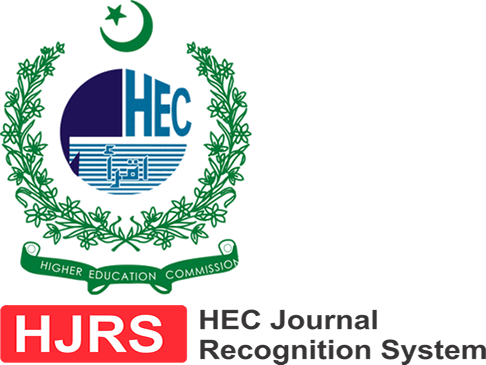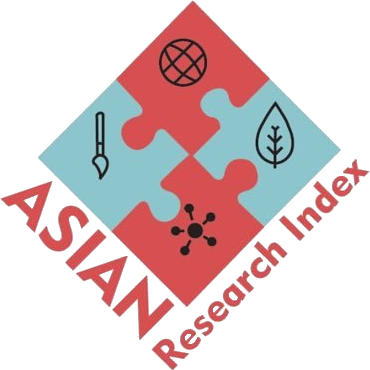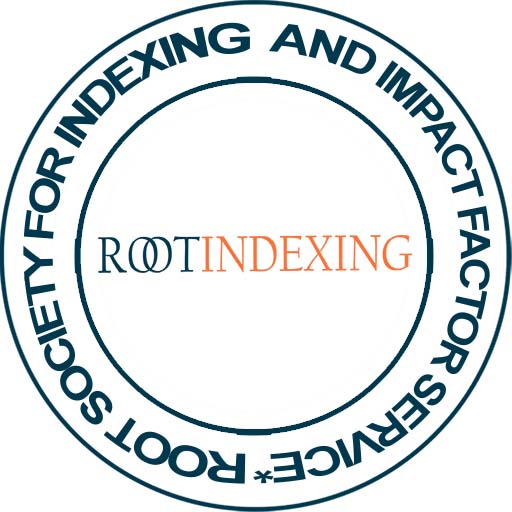SHARIA PERSPECTIVE ON THE LEGITIMACY OF DEBT: CORE PRINCIPLES AND CONSIDERATION
DOI:
https://doi.org/10.5281/zenodo.13205161Keywords:
Qard Hasan, Chiraty, Divine Reward, Documention, Social Justice, Islamic Shariah, Legitimacy, Lending.Abstract
The paper examines the practical costs and principles of the Islamic Shariah system, emphasizing its deep roots in the Quran and Hadith. Debt, a concept as old as human civilization, is neither new nor unique among Muslims. The Quran in its wisdom does not explicitly justify the existence of debt but clearly leads to its validity through verses. These classifications fall into two categories: those that present costs in a positive way, and those that provide specific cost decisions. In the first category, the Qur'an defines debt as a praiseworthy act rendered to Allah, often described as "Qarzi hasana" or a good loan This concept is related to the concept of charity and altruism if it’s a wonderful thing. For example, in Surah Al-Baqarah (2:245), believers are invited to lend money to Allah in the best possible manner, promised abundant rewards and heavenly bounty. According to Imam Razi’s interpretation, this debt includes both compulsory and voluntary charity, and reflects a spiritual dimension in which the act of charity is linked to the final return of Allah. Other important mentions are in Surah al-Maidah (5:12), which mentions a covenant with the Israelites, including establishing prayer, paying Zakat, believing in the Prophets and repaying a good loan to Allah This means that it includes obligatory religious duties also comes with the great benefit of voluntary financial support. The scholar Tabari interprets this positive debt as financial support for jihad and other noble causes, which is further emphasized by the verse calling for the support of the Prophets. Surah Al-Hadeed (57:11, 57:18) reaffirms Allah’s promise of divine abundance and honor for the borrowers.
References
Al Quran, Surah Baqrah: Verse 245.
Al Razi, Muhammad Ibn Omar ibn al-Husain, Altafsir ul Kabir wa Mafatihul Ghaib (Beirut: Dar al-Kutub al-Ilmiyya, 2000), Vol 2, P 142.
Al Quran, Surah Al Maidah: Verse 12.
Al Quran, Surah Al Hadid: Verse 11.
Al Quran, Surah Al Hadid: Verse 18.
Shafi, Mufti Muhammad, Marif-ul-Quran (Karachi: Idarat-ul-Maarif, August 2001) Vol 8, P 295.
Al Quran, Surah Al Taghabun: Verse 16-17.
Al-Khazen, Ali ibn Muhammad ibn Ibrahim, Lubab ul Tawil fi Mani ul Tanzil al marof bi Tafsir al-Khazen (Berut: Dar ul Kutub ul Ilmya,1996) Vol 4, P 360.
Al Quran, Surah Al Baqarah: Verse 282.
Al Quran, Surah Al Baqarah: Verse 282.
Al Quran, Surah Al Baqarah: Verse 283.
Tirmidhi, Muhammad ibn Issa, Jami al-Tirmidhi, (Berut: Dar ul Kutub ul Arabiya,1426 AH) Kitab al-Birr wal-Silah Bab Ma Ja fil Minhati Hadith No: 1957.
Heshami, Norudin Ali ibn Abi Bakr, Majma al-Zawaid wl Manbaul fawaid, Kitab al-Baiu, Bab ma ja fil Qarz, Vol 2, P 120, No. 2221.
Al-Bayhaqi, Ahmad ibn al-Husain, al-Sunan al-Kubra (Multan: Idara Talifat Ashrafiyah,1992) Kiab al Baiu, Bab ma ja fil Iqarz, Vol 5, P 353.
Ahmed bin Hanbal Al-Shaibani, Musnad Ahmad bin Hanbal (Riyadh: Bait ul Afkar,2005 AD), Hadith of Buraidah Al-Islami Number: 22970.
Ibn Maja, Muhammad ibn Yazid al-Qazvini, Sunan ibn Majah, (Riyadh: Dar-ul-salam llnashru wa twzie,2008) Kitab al-Sadaqat, Bab al-Qarz, Hadith No: 2431.
Heshmi, Majma al-Zawaid, Kitab al-Baiu, Bab Hasan al-Qazai wa Qarz ul-Khmer waghirhi, Vol 4, P 178, Hadith No. 2290.
Nasai, Ahmad ibn Shoaib, Sunan Al-Nasai, Kitab al-Baue, Bab al-Istiqaraz, Hadith No: 2201.
Bukhari, Muhammad ibn Ismail, Sahih al-Bukhari (Beirut: Dar ul Marift 1431 AH) Kitab al-Jihad wl-Sir, Bab ma ja fi Dari Nabyi sulal laho alihil wslam wal Qamis fil Harbi, Haddith No: 2912.
Bukhari, Muhammad ibn Ismail, Sahih al-Bukhari, Kitab al-Kafala, Bab al-Din, Hadith No: 2298.
Al Quran, Surah Al Imran: Verse 14.
Al Quran, Surah Al Fajar: Verse 20.
Al Quran, Surah Al Hashar: Verse 7.
Al Quran, Surah Al Mareej: Verse 24-25.
Sheikh Nizam udin, Al Ftwa ul Hindiya (Quetta: Makaba Rashidia,1999) Kitab ul Krahiyti, Al bab ul sabe wal eshraon fil Qarzi, Vol 5, P 366.
Hesami, Majma ul Zwaid wa Manba ul Fawied, Kiab ul baiu, Bab fi man an la yaqzi dinahu, Vol 4, P 167, No: 6654.
Bukhari, Sahih al-Bukhari, Kitab al-Istiqrz, Bab man Akz amualinas, Hadith No: 2387.
Al-Bayhaqi, Ahmed ibn Husayn, Al-Sunan ul-Kubra, Kitab al-Baiu, Bab ma ja fi Jawaz al-Istiqarz, Vol 5, P 354.
Ahmed ibn Hanbal, Musnad Ahmad, Hadith Sayyida Aisha, P 1818, Hadith: 24959.
Bukhari, Sahih al-Bukhari, Kitab al-Riqaq, Bab Qwli Nabiy sulal laho alihil waslam Ma yasirni, Hadith No: 6444.
Ahmed ibn Hanbal, Musnad Ahmad, Musnad Anas ibn Malik, P 932, Hadith No:13594.
Ibn Qadamah, Abdullah bin Ahmed bin Muhammad al-Maqdisi, Al-Mughni fi Fiqh Imam Ahmad ibn Hanbal al-Shaibani, (Riyadh: Dar Alam al-Kutab Liltaba wanshri wa tawozi,1990) Kitab al-Salam, Bab al-Qarz, Vol 2, P 430.
Ibn Qadamah, Abdullah bin Ahmed bin Muhammad bin Qadamah, Almughni fi fiqh Imam Ahmed bin Hanbal al-Shaibani, Kitab al-Salam, Bab al-Qarz, Vol 6, P 230.
Ibn Majah, Sunan Ibn Majah, Kitab ul Sadaqat, Bab ul Qarz, Hadith No: 2431.
Al-Tayalsi, Suliman bin Dawood bin Al-Jaroud Musnad Abi Dawood (Beirut: Hajar Liltaba wanshri, 1429 AH 1999 AD), Hadiths of Abu Umamah Al-Bahili, Hadith Number: 1237.
Ahmed ibn Hanbal, Musnad Ahmed ibn Hanbal, Musnad Twabi ul Ashrati, Hadith Abdal Rahman ibn Abi Bukra, P 156, Hadith no 1708.
Nissaburi, Muhammad ibn Abd Allah Hakim, Al-Mustadrak Ali al-Sahihin, (Qahira: Dar al-Haramain Liltaba wanshri, 1997), Kitab al-Baiu, Vol 2, P 29, Hadith no 2260.
Sheikh Nizam uddin, Fatwa Hindia, Kitab ul Krahiyati, Albab ul Sabi wal Ishron fil Qarz wl Dain, Vol 5, P 366.
Al Quran, Surah Yousaf: Verse 28.
Al Quran, Surah Al Mominon: Verse 80.

Downloads
Published
How to Cite
License
Copyright (c) 2024 AL MISBAH RESEARCH JOURNAL

This work is licensed under a Creative Commons Attribution 4.0 International License.
AL-MISBAH Research Journal is full open access and licensed under Creative Commons Attribution 4.0 International License; and Published by: Research Institute of Culture & Ideology (REINCI), Islamabad, Pakistan. This allows the research community and the general public to gain unlimited, free and immediate access to scholarly articles, and to reuse the content freely provided that proper attribution is given to the original authors.









